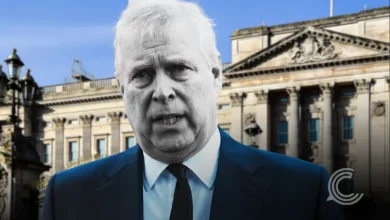COP31: Turkey Named Host as Australia Takes Lead in Negotiations

Key Highlights–
- Turkey to host COP31 in Antalya, while Australia leads government negotiations under a compromise deal.
- The agreement ends a two-year standoff between the two countries over the 2026 summit.
- Pacific nations express disappointment, saying they expected the summit to prioritise their climate vulnerability.
Turkey is scheduled to host next year’s UN climate summit, COP31, while Australia will lead the conference’s negotiations, following a compromise deal that is taking shape during talks in Brazil.
The arrangement, highlighted by Australia’s Prime Minister Anthony Albanese in an interview, resolves a deadlock that has persisted since both countries submitted competing bids in 2022.
A Breakthrough Deal Ends a Two-Year Standoff
The annual COP gatherings serve as the world’s most influential platform for driving climate policy. According to Albanese, the emerging agreement is “a big win for both Australia and Turkey,” offering each country a leading role without forcing either to step aside entirely.
How the Shared Model Will Work
Under the compromise, Turkey will be hosting the summit in the coastal city of Antalya and assume the official role of summit president. Meanwhile, Australia will lead the negotiations between governments, giving Canberra significant influence over agenda-setting, draft texts, and the final COP cover decision.
Australia’s Climate Change and Energy Minister Chris Bowen told reporters at COP30 in Belém, Brazil, that the deal allows Canberra to meet its core diplomatic objectives, even though Australia had originally hoped to host the entire summit. As reported by Reuters, Bowen acknowledged, “It would be great if Australia could have it all. But we can’t have it all.”
Bowen confirmed he would effectively operate with “all the powers of COP presidency” for the negotiation track, including appointing co-facilitators and managing the drafting process.
A pre-COP event will also be held in the Pacific, fulfilling part of Australia’s earlier vision for a “Pacific COP,” which was developed in partnership with island nations.
Pacific Nations Voice Disappointment
Despite the compromise, the outcome has frustrated some Pacific leaders who believed the region, among the most climate-vulnerable in the world, deserved a more central position. Papua New Guinea’s Foreign Minister Justin Tkatchenko told Reuters that Pacific countries “are the ones that are affected by climate change the most and we give out zero emissions,” adding that they had hoped to be “the main focus” of the summit.
Australia’s Treasurer Jim Chalmers, speaking to Sky News, countered that the Pacific remains “front and centre,” stressing that Canberra pushed for maximum regional involvement under the new arrangement.
Australia had earlier invested A$7 million (US$4.5 million) in preparations, anticipating widespread international support for its hosting bid.
Turkey’s Global Pitch for COP31 and Strategic Stakes
Turkey has long argued that, as an emerging economy, it could offer a global platform that bridges the priorities of both wealthy and developing countries. Ankara emphasised that its COP31 would focus on fostering solidarity across regions rather than centring on a specific geography.
Earlier this week, Prime Minister Albanese dismissed the possibility of co-hosting due to UN rules, despite Turkey having previously suggested hybrid models during meetings in September.
Analysts say the final arrangement might actually work to Australia’s advantage. David Dutton of the Lowy Institute, formerly an Australian assistant secretary for climate diplomacy, told local media the deal “alleviates some of the cost and burden of organising the COP while creating opportunities for Australia and the Pacific to do something with it.”
With the agreement nearly sealed, Turkey and Australia now face a demanding year of diplomatic coordination. COP summits typically draw tens of thousands of delegates and require months of preparation to broker consensus on global climate goals.



